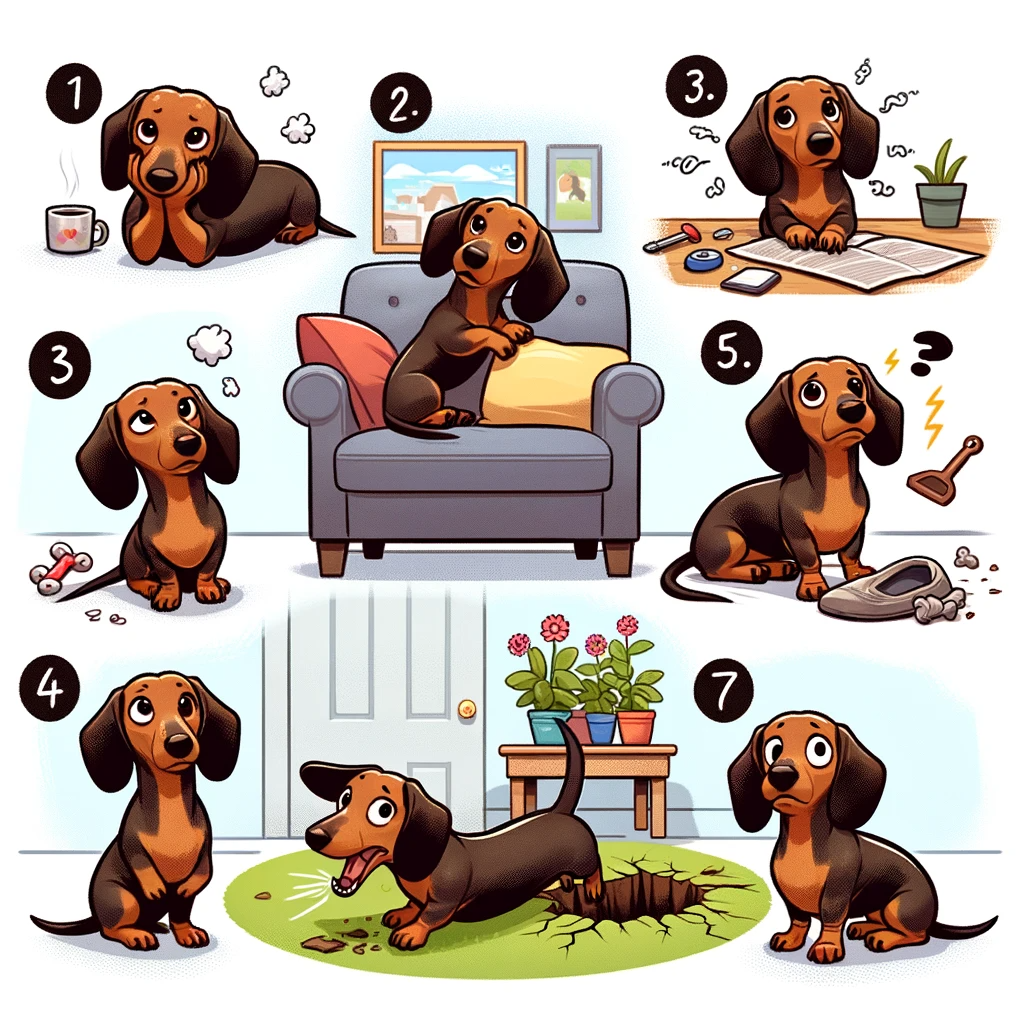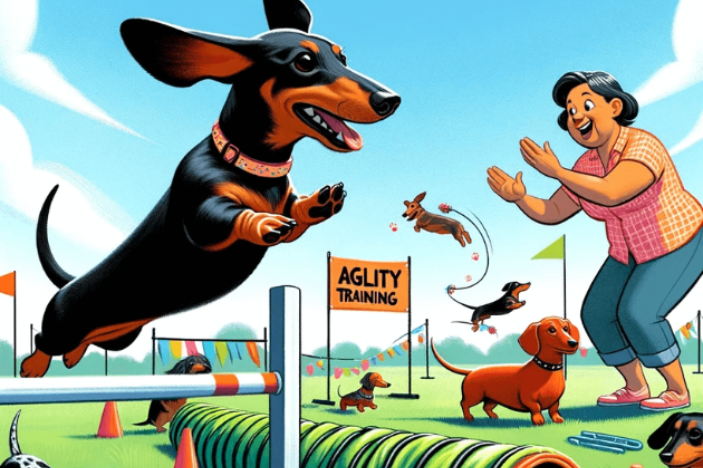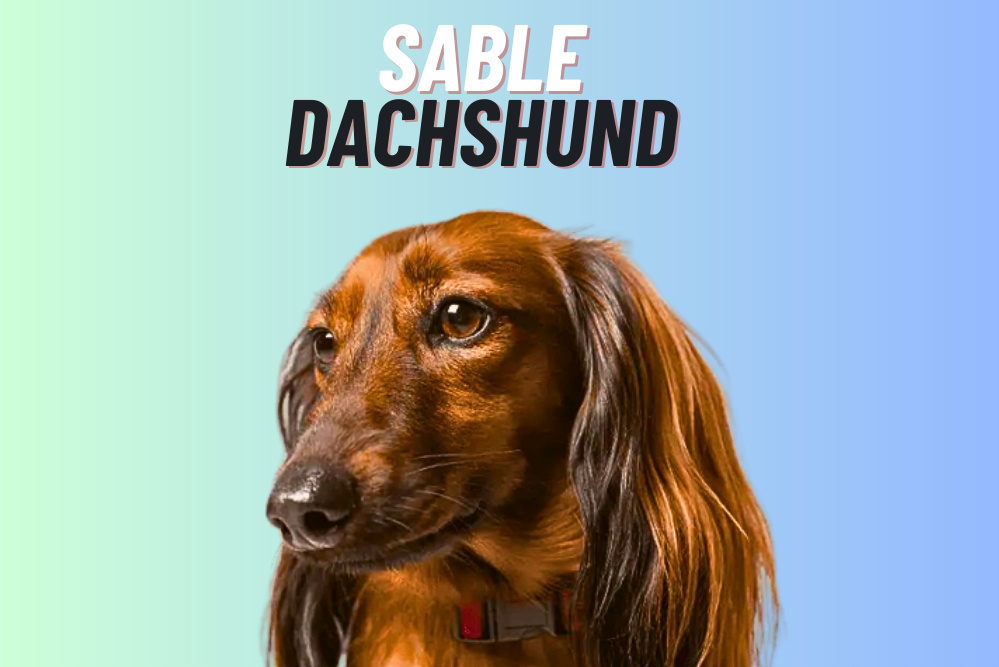There are several reasons why your Dachshund may be skinny, including:
- Poor diet: If your Dachshund is not getting enough of the right nutrients from their food, they may lose weight. Make sure you are feeding them high-quality dog food that is appropriate for their age and size.
- Health problems: Certain health problems can cause weight loss in dogs, such as parasites, infections, diabetes, and cancer. It’s important to take your Dachshund to the vet for a check-up to rule out any underlying medical issues.
- Dental problems: If your Dachshund has dental issues, it may be difficult for them to eat properly and causing them to lose weight.
- Aging: As dog’s age, their metabolism slows down, and they may require fewer calories. Adjusting their diet and exercise routine can help maintain their weight.
- Anxiety or stress: Stress and anxiety can affect a dog’s appetite, leading to weight loss.
If you are concerned about your Dachshund’s weight, it’s best to consult with a veterinarian to determine the underlying cause and develop a treatment plan.
Are Dachshunds supposed to be skinny?
Dachshunds come in different sizes and varieties, but generally, they are not supposed to be skinny. Dachshunds should have a healthy body weight that is appropriate for their size and age.
Overweight or underweight Dachshunds can be prone to health issues such as joint problems, diabetes, and heart disease. Therefore, it is essential to maintain their ideal body weight through a balanced diet and regular exercise.
If you are concerned about your Dachshund’s weight, you should consult with your veterinarian to determine if your dog is at a healthy weight and to develop a plan to maintain their optimal body condition
How can I fatten up my miniature dachshund?
Fattening up your miniature dachshund may involve a few different strategies, including feeding him high-quality dog food that is made for overweight pets, giving him plenty of exercises outside on a regular basis, and providing occasional treats.
All of these things will help to make your pet look and feel healthier. Additionally, you can try using weight-loss supplements if you believe they might be helpful in helping your pet to lose weight more quickly. Always consult with your veterinarian before starting any new diet or supplement regimen in order to ensure the best possible outcome for your furry friend.
How can I fatten up my skinny dog?
One of the best ways to fatten up your skinny dog is through a diet that consists of high-quality protein and fresh fruits and vegetables.
By providing your pet with these essential nutrients, you will help to ensure that he or she maintains a healthy weight.
In addition to providing energy, proteins are needed for building muscle and tissues, while fruits and vegetables contain vitamins, minerals, antioxidants, dietary fiber, as well as other beneficial nutrients.
A balanced diet is also important for preventing diseases such as obesity or type 2 diabetes. If you’re looking to get started with an optimal nutritional plan for your dog, be sure to consult with a veterinarian who can recommend specific brands and types of food that are safe for pets.
Why can I suddenly feel my dog’s spine?
Dogs have a spine just like people do, and when they get hurt or confused, their spines may become compressed. This can cause pain and restrict movement in the neck or back area. If you notice your dog is struggling to move around normally, it’s best to take him to the veterinarian for an examination as soon as possible.
Why is my dog so skinny but eats a lot?
It is possible that your dog is not getting enough protein. Protein is essential for dogs and cats, and it can be found in a variety of different sources including meat, fish, eggs, legumes, etc. If your dog doesn’t eat enough protein from food alone then he may try to supplement his diet with bone broth or other animal-based proteins. This will help to provide the necessary nutrients and ensure that he stays healthy overall.
Is it normal for Dachshunds to be skinny?
While a Dachshund’s weight can vary depending on its diet and activity level, most dogs are quite lean. This is due in part to the fact that Dachshunds have a high metabolism and require little food overall for their size. In addition, they tend to be active throughout the day and may not consume as much energy-rich food as other breeds do. As such, it is not unusual for a Dachshund to be relatively thin compared to other breeds of dog.
Why is my dog so skinny but eats a lot?
There could be a few different reasons why your dog is skinny despite eating a lot. Here are a few possibilities:
- Poor quality food: If your dog is eating a lot but not gaining weight, it could be that the food you’re giving them is not providing them with the necessary nutrients they need to put on weight. Check the ingredients in your dog’s food and make sure that it is high-quality and contains enough protein, fat, and carbohydrates.
- Health issues: There are a number of health issues that can cause weight loss in dogs, even if they are eating a lot. Some common examples include parasites, digestive issues, and thyroid problems. If you’re concerned about your dog’s weight, it’s a good idea to take them to the vet for a checkup.
- Increased activity: If your dog is very active or has a high metabolism, it may burn more calories than they consume, leading to weight loss. In this case, you may need to increase the amount of food you’re giving them to ensure they are getting enough calories.
- Genetics: Some breeds of dogs are naturally leaner than others, and it may be that your dog simply has a lean build. However, it’s still important to ensure that they are at a healthy weight for their breed and size.
Overall, if you’re concerned about your dog’s weight, it’s always best to consult with a veterinarian to rule out any underlying health issues and ensure that you’re feeding your dog the appropriate amount and quality of food
Conclusion:-
There are many things that you can do to make sure your Dachshund isn’t on a high-calorie diet. For starters,
it is important to be an active owner and ensure that your dog gets the exercise he needs daily. Another way is to try new foods in small quantities, like giving them a few pieces of chicken instead of large portions of treats.
It’s also important to offer plenty of fresh water every day and have regular vet checkups to monitor their health.




